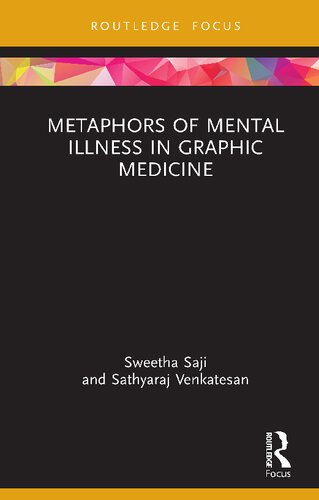

Most ebook files are in PDF format, so you can easily read them using various software such as Foxit Reader or directly on the Google Chrome browser.
Some ebook files are released by publishers in other formats such as .awz, .mobi, .epub, .fb2, etc. You may need to install specific software to read these formats on mobile/PC, such as Calibre.
Please read the tutorial at this link: https://ebookbell.com/faq
We offer FREE conversion to the popular formats you request; however, this may take some time. Therefore, right after payment, please email us, and we will try to provide the service as quickly as possible.
For some exceptional file formats or broken links (if any), please refrain from opening any disputes. Instead, email us first, and we will try to assist within a maximum of 6 hours.
EbookBell Team

4.7
76 reviewsThis book investigates how graphic medicine enables sufferers of mental illness to visualize the intricacies of their internal mindscape through visual metaphors and reclaim their voice amidst stereotyped and prejudiced assumptions of mental illness as a disease of deviance and violence.
In this context, by using Lakoff and Johnson’s conceptual metaphor theory (CMT), this study uncovers the broad spectrum of the mentally ills’ experiences, a relatively undertheorised area in medical humanities. The aim is to demonstrate that the mentally ill are often represented as either grotesquely exaggerated or overly romanticised across diverse media and biomedical discourses. Further, they have been disparaged as emotionally drained and unreasonable individuals, incapable of active social engagements and against the healthy/sane society.
The study aims to unsettle the sanity/insanity binary and its related patterns of fixed categories of normal/abnormal, which depersonalise the mentally ill by critically analysing seven graphic narratives on mental illness.